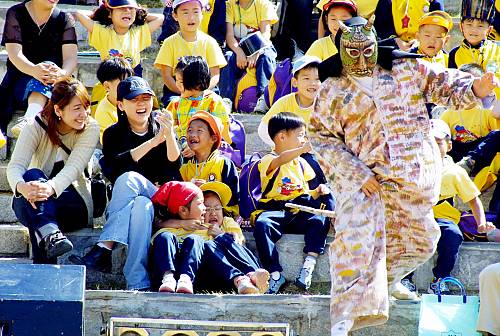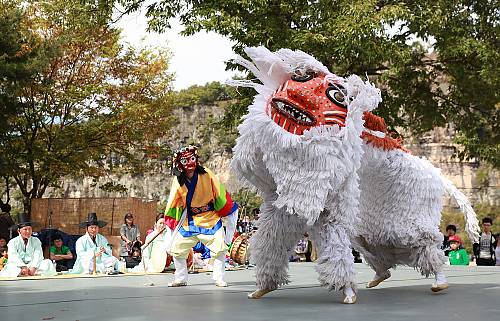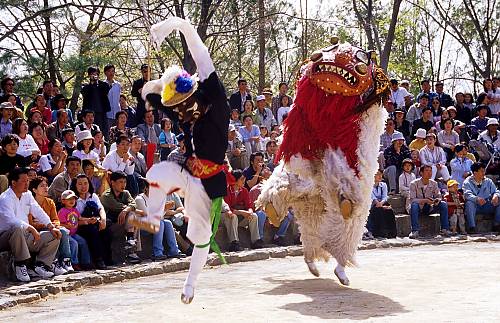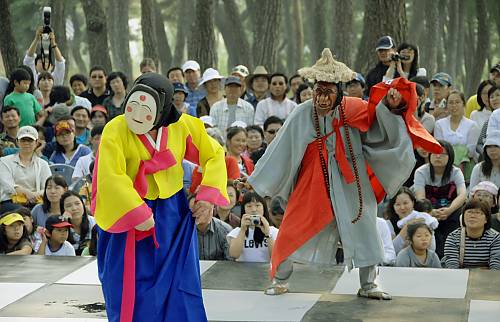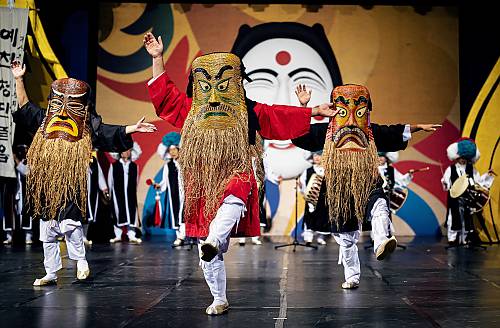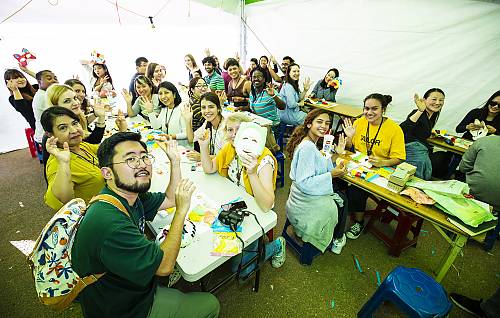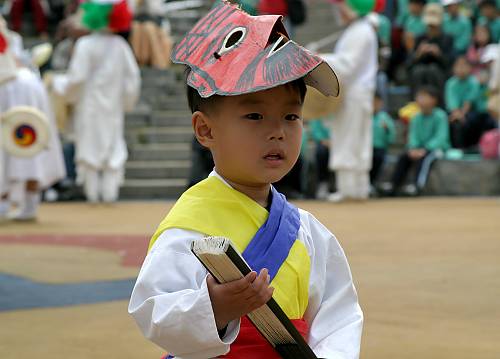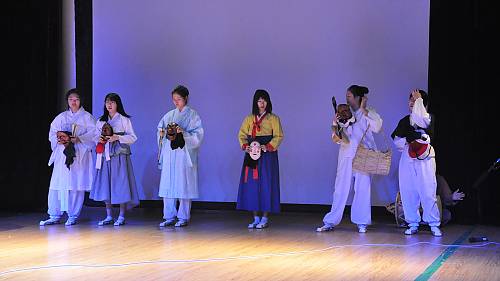Talchum, mask dance drama in the Republic of Korea
Inscribed in 2022 (17.COM) on the Representative List of the Intangible Cultural Heritage of Humanity
Talchum is a performing art that encompasses dance, music and theatre. An ensemble of six to ten musicians accompanies masked performers who humorously explore social issues through dramatic combinations of songs, dances, movements and dialogue. The practice uses caricatures of everyday characters to convey its underlying appeal to universal equality and criticism of social hierarchy. Talchum performances do not require a formal stage: any empty space can become a venue. The audience plays an essential role, contributing to the production with their cheers and jeers as the drama unfolds. This interaction with audiences and the focus on social criticism contributed to Talchum’s large-scale transmission in the 1970s and 1980s among young people, particularly university students. This generation continues to play a critical role in the transmission of the practice, passing on the related knowledge and skills of Talchum performance and mask-making to younger generations through local associations, clubs, camps and public schools. Initially performed by men, the practice now includes women. In addition to serving as a tool for social commentary, Talchum can promote and reinforce local cultural identities through the inclusion of local dialects and folksongs. Talchum mask dance dramas are also an important part of local festivals.

